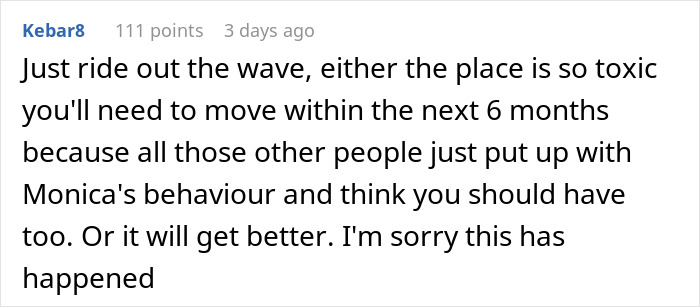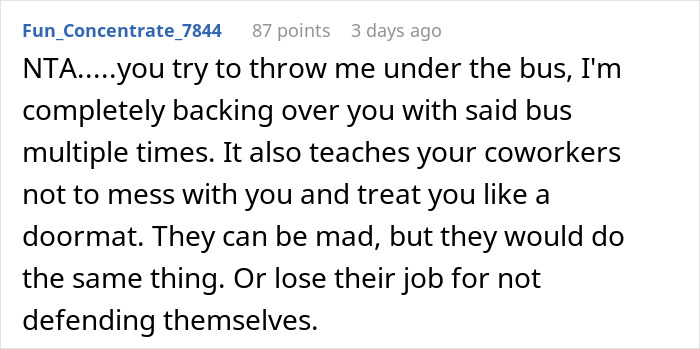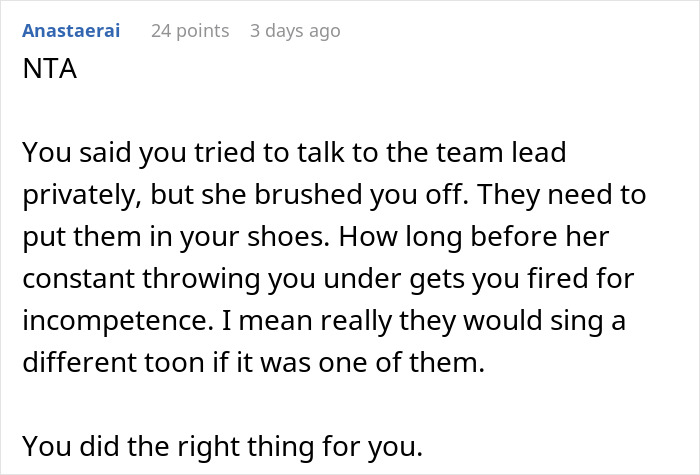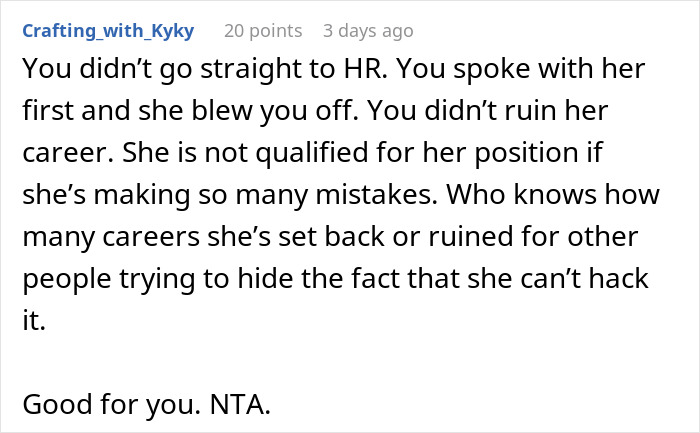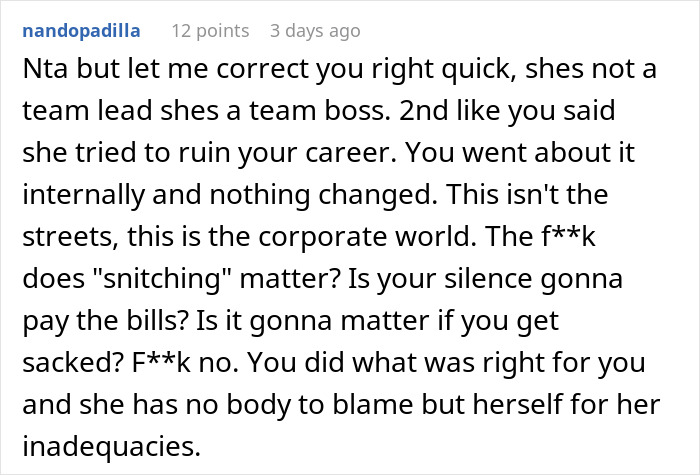Workplace dynamics can often be complicated, especially when leadership fails to take responsibility for their actions. In many organizations, employees face challenges not only from demanding workloads but also from managers who deflect blame onto others.
Today’s Original Poster (OP) found himself repeatedly scapegoated by their team lead. Despite clear evidence disproving her accusations, he faced ongoing false blame and gaslighting. Eventually, he decided to take his concerns directly to Human Resources, but it didn’t sit well with his fellow colleagues.
More info: Reddit
Navigating the early stages of a new job is tough when you have to dodge workplace politics and power plays

Image credits: freepik / Freepik (not the actual photo)
The author was a junior employee who noticed his team lead repeatedly shifting blame onto him for mistakes she made
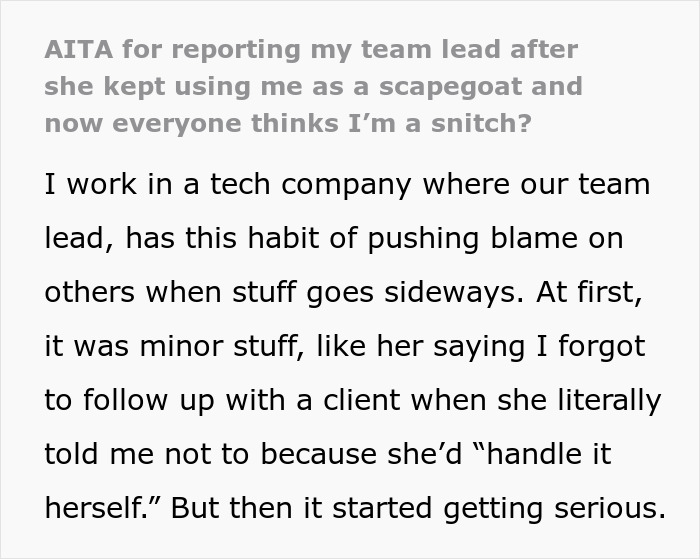
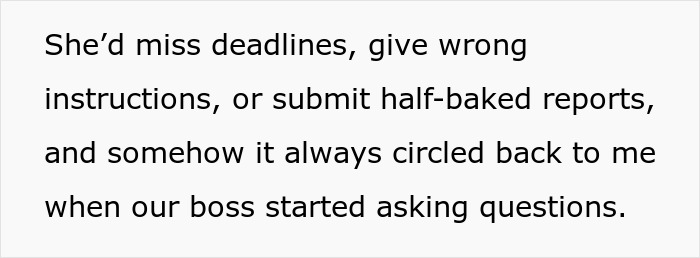
Image credits: sweethannydew

Image credits: freepik / Freepik (not the actual photo)
Despite trying to address it privately, the team lead dismissed his concerns and continued the behavior
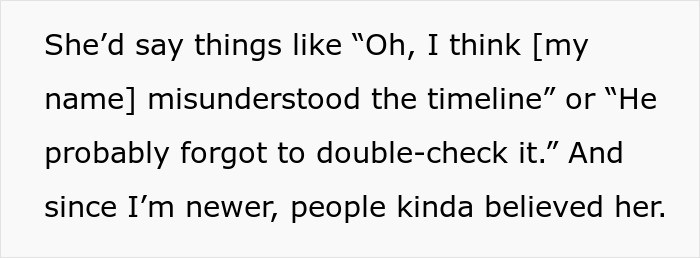
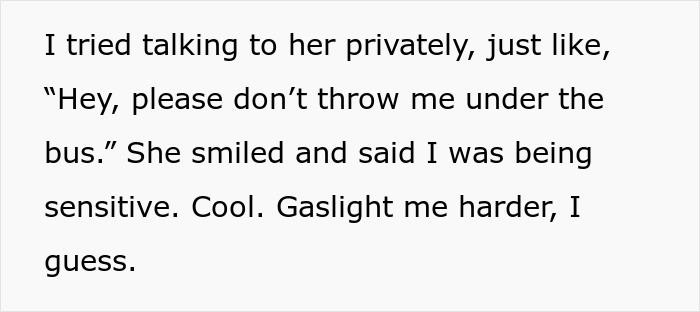
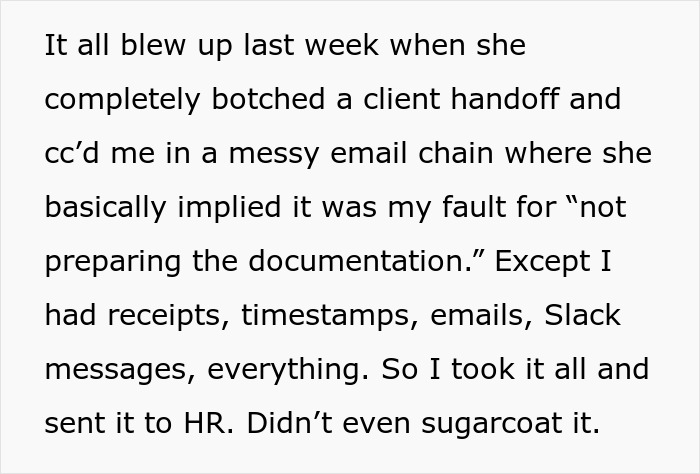
Image credits: sweethannydew

Image credits: freepik / Freepik (not the actual photo)
Things escalated when she publicly blamed him in a client email, but he had documented evidence proving otherwise

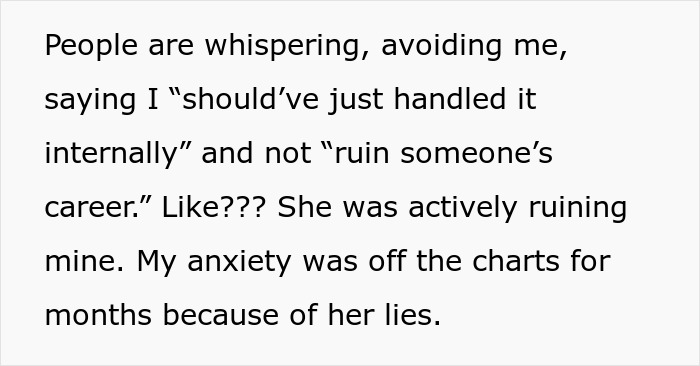
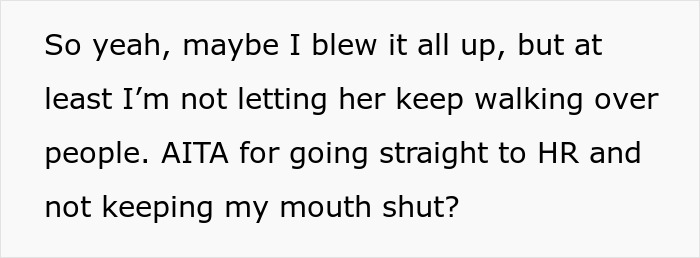
Image credits: sweethannydew
He eventually reported everything to HR, triggering an investigation, which led to his colleagues accusing him of ruining the team lead’s career
At first, the issues were minor, like little slip-ups from the OP’s team lead, who would conveniently forget things and then pass the blame like a relay baton. The OP, new to the job, often took the heat when tasks mysteriously “fell through,” even though he had proof he wasn’t responsible.
A forgotten client follow-up here, a vague timeline confusion there. Harmless enough, right? However, these micro-fumbles turned macro fast because as deadlines got tighter and client interactions became more sensitive, the blame-shifting became aggressive.
The team lead was submitting subpar work, miscommunicating with upper management, and when the questions came flying in, the OP got name-dropped. When he gently confronted the team lead about being repeatedly thrown under the metaphorical corporate bus, her response was that he was being sensitive.
Eventually, the team lead’s errors spilled over into a client handoff, and this time, she didn’t just blame the OP in passing. She wrote a full-blown email implying he’d failed to provide key documentation, even though every receipt pointed otherwise. Emails. Timestamps. Slack logs. It was all there.
That’s when the OP decided he’d had enough. He gathered the evidence and marched straight to HR and presented evidence that he’d done nothing wrong. However, standing up for yourself isn’t always well-received. Colleagues started giving the side eye, whispering, and calling the OP a snitch who “should’ve handled it internally”.

Image credits: freepik / Freepik (not the actual photo)
To understand why some team leads repeatedly shift blame onto junior employees, Bored Panda spoke with HR specialist Rabi Adetoro, who explained that this behavior is more common than many realize. “Blaming junior staff often comes from deeper issues like insecurity, pressure, or just a lack of leadership skills,” she said.
She noted that many managers deflect responsibility to protect their own reputation or avoid conflict with upper management. “Sometimes, it’s simply a lack of emotional intelligence or poor stress management that makes blame their default reaction.”
When asked about the importance of documentation in these situations, Adetoro emphasized how critical clear evidence is. “Emails, timestamps, messages, anything that shows communication between the employee and their boss are super important because they offer objective proof that helps HR get the full picture without relying on memories or rumors,” she explained.
She also highlighted that solid documentation boosts the employee’s credibility and allows for a fair investigation by revealing clear timelines and behavior patterns.
Adetoro also outlined how HR typically handles allegations of unfair blame or misconduct. “It typically starts with listening to the employee’s concerns and collecting all relevant evidence, including witness statements,” she said.
She further explained that “HR interviews everyone involved to maintain neutrality, then assesses if policies were broken and decides on the appropriate actions, ranging from coaching to formal discipline.” She then added that after the investigation, HR closely monitors the situation to prevent retaliation and build a culture of trust and accountability.
Netizens strongly supported the OP, who stood up to unfair blame, emphasizing that he was justified in taking his concerns to HR. They pointed out that the team lead’s behavior was toxic and unacceptable. They also acknowledged his efforts to resolve the issue privately before escalating it, reassuring him that he did the right thing.
What do you think about this situation? Do you think going to HR is always the best step, or are there other ways to handle workplace conflicts? We would love to know your thoughts!
Netizens applauded the author for standing up for himself, and insisted that it was the team lead who was trying to ruin his career


